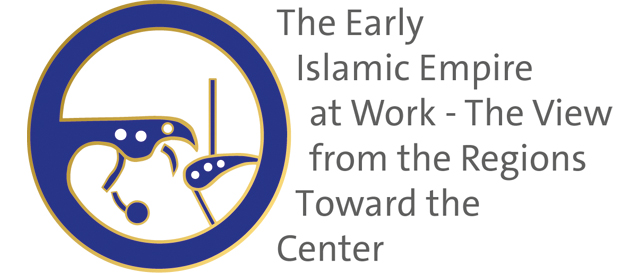Early Islamic Empire Working Paper Series
This space is dedicated to the Working Paper Series published by the ERC project "The Early Islamic Empire at Work – The View from the Regions Toward the Center”. The papers published here represent our work in progress and should be considered stimuli for debate.
Please note:
Copyright remains with the individual author(s); users may download for personal use, but any additional reproduction for other purposes, whether in hard copy or electronically, requires the consent of the author(s)/editor(s). It is understood that all persons downloading or copying any of the papers of this working paper series will adhere to the terms and constraints invoked by each author's copyright. If cited or quoted, reference should be made to the full name of the author(s)/editor(s), title, the working paper series, the year, and the URL. No prior permission by the author(s) is required when citing or quoting the papers included in this series.
Early Islamic Empire Working Paper Series – Working Paper 01
Abstract:
The paper studies the question of the transition in Iran from a centralized bureaucratic empire to a state structure based on land grants and personal relationships between ruler and retainers. It analyses the spatial structure of Sanjar b. Malikshāh’s eastern Iranian empire in two sections. In the first section, the vassal zone where subdued kings ruled, a household zone where governors tried to found hereditary dynasties, and the imperial oasis which was under direct control of the central administration are described. In the second section, an aristocratic zone is identified where local lords held sway, sedentary as well as nomadic ones, who did not depend on imperial appointments for their position. In conclusion, the paper observes that personal relations of the khidma type were paramount even if the empire was still able to tax agricultural lands to a large degree and therefore could also pay the army in cash.
Keywords:
Seljuq empire; Sanjar; "politics of land"; khidma; aristocracy
Early Islamic Empire Working Paper Series – Working Paper 02
José Haro Peralta and Peter Verkinderen. "JEDLI: A Textual Analysis Toolbox for Digitized Arabic Texts." (Early Islamic Working Paper Series 2), Hamburg 2016.
A later version of the Working Paper was published as
José Haro Peralta and Peter Verkinderen. "'Find for Me!': Building a Context-Based Search Tool Using Python." In The Digital Humanities and Islamic & Middle East Studies, ed. by Elias Muhanna, Berlin: De Gruyter, pp. 199-231 (pdf)



